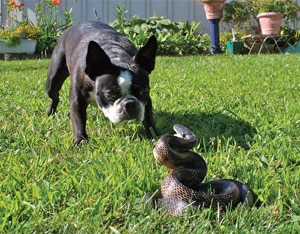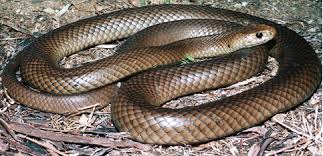Each year as the weather starts to get warmer and warmer, snakes are out and the danger for your pets is very real. Over just the past few weeks, we have treated 7 dogs due to snake bite and we wanted to share with you some important information that could help save your pet.
The most common type of snake bites we see in our area are from the eastern brown snake and the king brown snake.

Symptoms
Several factors will determine what sort of reaction your pet has to a snake bite:
*The type of snake (some species of snake are more venomous that others)
*The amount of venom injected (depends on the size and maturity of the snake)
*The site of the snake bite (the most common area for dogs and cats to be bitten is on the limbs and around the head)
The most common signs of snake bit by a venomous brown snake are as follows:
*Shaking or twitching of the muscles
*Sudden weakness followed by collapse
*Seizures
*Dilated pupils not responsive to light
*Vomiting
*Blood in the urine
*In the later stages paralysis may occur – this usually starts from the ind legs.
IMPORTANT!!! Please note that while your pet may initially show symptoms of snake bite, it is quite common for them to to appear to make a quick recovery, leaving you wondering if perhaps they were not bitten after all, or if they even need any treatment.
Unfortunately this decision can ultimately mean the difference between life and death. If it imperative that you ignore this apparent period of calm if you suspect they were bitten as they will rapidly deteriorate if they in fact have been bitten.
Veterinary Treatment
*Examination – we will assess the clinical signs they are showing and determine the best treatment from there
*Diagnostic tests may be required to determine if your pet has actually been bitten
*Treatment usually consists of intravenous fluids and the administration of antivenom to neutralise the snake venom in the pet’s body. Some patients require multiple vials of antivenom.
*Ongoing veterinarian and nursing care in hospital will be required until the pet has recovered sufficiently to go home.

